All Available Episode
All Season 3 Episode
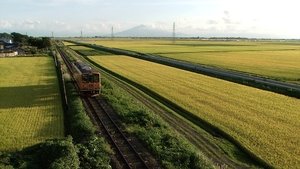
1. Turning Problems Into Opportunities: The Tsugaru Railway's Strategy
Tsugaru Railway is a local private railway that runs for 20.7km in Aomori Prefecture, in northern Japan. Its "Stove Train" is now a popular tourist attraction in winter, but 10 years ago the company narrowly escaped crisis when ridership began to significantly decrease due to local depopulation and the shift to motorization. See how an outsider CEO saved the company by gathering funds and came up with unique ideas and turned problems into opportunities. Then see Iwakura High School - a school that teaches railway related curriculums.
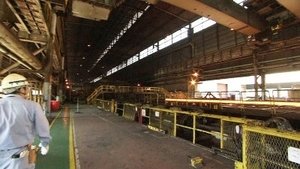
2. Japan's World-Class Rail and Wheels
Japanese rails and train wheels are currently gaining worldwide attention due to wear and tear resistance and reliability. The durable rails are used for North America's freight trains that haul hundreds of cars which are stacked in 2. Also, see train wheels from stable operation of Shinkansen that are applied on ICE, a German high-speed railway. In this program, discover the manufacturing process of Japanese rails and train wheels boasting world-class quality.
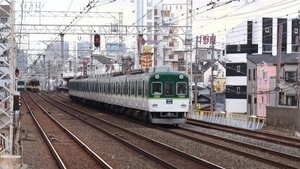
3. Keihan Electric Railway: Advanced Technology That Dominated the Railway Hub
3 railways have been competing for dominance of the Osaka-Kyoto region since the 1920's. The Keihan Electric Railway's many S-curves made it the underdog against Japan Railway Company and Hankyu Railway, but after introducing advanced technology and new innovative services the company is now on top. Join us as we take a look at how Keihan Electric Railway's efforts have made a major impact on the improvement of rail technology in Japan.
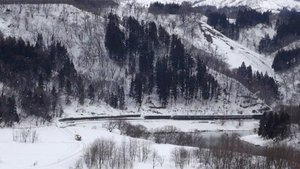
4. The Long Winter of Discontent: One Railway's Battle Against Snow
The Iiyama Line in Nagano Prefecture operates in one of Japan's snowiest regions. 7.85m of snow has been recorded along the line, which is the record among Japanese railways. Heavy snow is an obstacle that cannot be avoided in this region, so clearing it is crucial to maintaining scheduled operations. In this program, we introduce the latest vehicle that operates as both a snow plow and blower, various countermeasures used to combat snow, and the railway's battle against the long harsh winter.
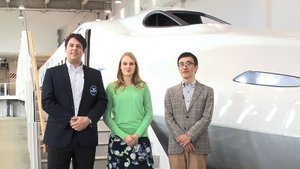
5. Dreams of a Texas Bullet Train: Future Plans for Japan's High-Speed Railways
Japan's high-speed rail system, the shinkansen, may soon be flying across the U.S., with plans to connect 2 major cities in Texas. Traveling between Dallas and Houston now takes up to 4 hours by car or plane, but with support from Tokaido Shinkansen operator, JR Central, the project aims to connect the cities in just 90 minutes. Join us as we look at the Texas Bullet Train, a project scheduled to begin operations in 2023 that could be the foothold for future exports of shinkansen technology.

6. Using Railways to Promote Local Tourism: Kyushu Railway Company's Strategy
There are currently over 100 tourist trains in service throughout Japan. Among the various companies operating tourist trains, the Kyushu Railway Company, also known as JR Kyushu, operates 11 unique tourist trains which helps endorse tourism in the area. In this program, we introduce JR Kyushu's popular tourist trains and their strategy that links tourist trains to the revitalization of the region.

7. Toden Arakawa Line: A Hidden Gem for Tourists from Overseas
The Toden Arakawa Line is a streetcar service in the center of Tokyo. There are over 30 stops on the 12.2km line, and transports over 16.6 million people annually. Throughout the years, the line has operated as a means of local transport but recently has been gaining interest among tourists from overseas. In 2015, the line was awarded the "Certificate of Excellence" from the world's largest tourist website, TripAdvisor. In this program, we introduce the Toden Arakawa Line and the everyday lives of local Tokyo residents. Then "Trains in Focus" grants a peek of Yamagata Shinkansen's "Toreiyu Tsubasa".
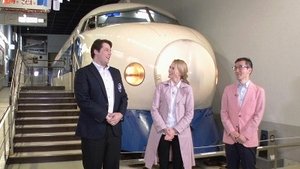
8. All the Comfort You Require: Onboard Services on Japanese Trains
From high-speed Shinkansen to tourist trains operated by local railways, onboard trolley services are available on various trains, and is a unique service in Japan. In this program, we introduce various features of the trolley service such as the systems, customer-care training as well as the latest techniques and approaches, which makes onboard trolley services an essential part of rail travel in Japan.
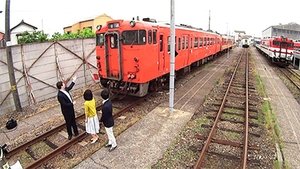
9. The Unsung Hero of Japanese Railways: Series Kiha 40 Diesel Trains
Series Kiha 40 diesel trains were mass-produced in the late 1970's, and were highly valued on non-electrified lines. These workhorses are made from durable mild steel, and even after the privatization of Japan National Railways and 40 years in service, trains are still operating all over Japan. Kiha 40 trains are easier to refurbish and currently, there are many cases where companies are converting them into fun tourist trains. In this program, we introduce the "unsung hero" of Japan's railways that wrote itself into the history books.
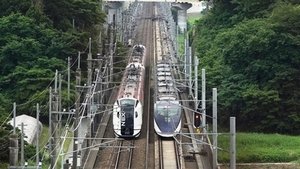
10. Airport Express Lines: How Competition Is Improving the Ride Into the City
At Narita and Kansai International Airports, railways providing access into the city must constantly offer better services at lower prices to maintain their market share. JR East's "Narita Express" and Keisei Electric Railway's "Skyliner" operate between Narita Airport and Tokyo, while JR West's "HARUKA" and Nankai Electric Railway's "rapi:t" serve Kansai Airport and Osaka. See the strategies these railways use to attract travelers from overseas, including special discounts and unique services.
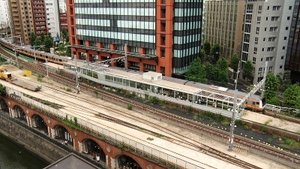
11. Prepaid E-money Cards: The Smart Way to Travel in Japan
15 million people commute in and out of Tokyo every day, and most of them now use prepaid e-money cards. Because one card can be recognized by multiple transport companies, the system has streamlined automated fare collection. A card's IC chip has an e-wallet function, and can store information such as boarding section and expiration dates on monthly passes; all of which can be verified in just 0.2 seconds. See how these cards and the technology behind them have transformed rail travel in Japan.
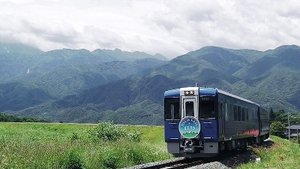
12. HIGH RAIL 1375: The Tourist Train That Touches New Heights
"HIGH RAIL 1375" is JR East's newest tourist train, which started operating in July 2017. The train runs on the JR Koumi Line through the mountains of Nagano and Yamanashi Prefectures; an area famous for its majestic alpine views and beautiful starry skies. The train makes the most of its stunning backdrop, and offers unique services for day and night operations. Come behind the scenes as we take an in-depth look at the development of this new train, and how its revitalizing the local area.
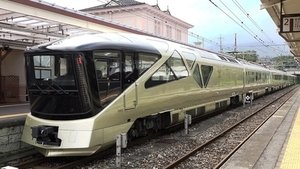
13. Train Suite Shiki-shima: The High-Tech Luxury Cruise Train
May 2017 saw the launch of JR East's new cruise train, "Train Suite Shiki-shima". "Cruise trains" are a new type of luxury train that stop at sightseeing spots in Japan. "Train Suite Shiki-shima" is Japan's second cruise train following the launch of JR Kyushu's "SEVEN STARS IN KYUSHU" in 2013, and with JR West's "TWILIGHT EXPRESS MIZUKAZE" coming in June 2017, Japan is entering a new "cruise train" era. See the technology and support that makes this cruise train a truly luxurious experience.
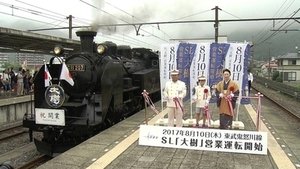
14. A Long-Awaited Whistle: Tobu Railway's Steam Service Revival
From August 2017, TOBU Railway started operating "SL TAIJU"; a tourist steam train and the first steam service on the railway for 50 years. TOBU Railway discontinued steam services in 1966, leaving them no equipment or facilities, so 8 railway companies across Japan helped out. The Class C11 loco was lent by JR Hokkaido, the passenger cars by other JR companies, while training was done in cooperation with railway companies operating steam locos. See the revival project and the fantastic new "SL TAIJU".
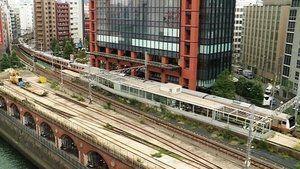
15. Rediscovering Old Horizons: Preservation and Utilization of Railway Heritage
Preservation activities are ongoing for old stations and trains that contributed to the modernization of Japan, as they are a vital part of history. Recent examples include an old station in the heart of Tokyo renovated into a commercial complex, disused stations transformed into contemporary art, and a citizen group persevering a historic train through internet fundraising. See how railway heritage is being given a new lease of life, and helping to revitalize local regions.
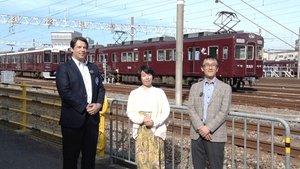
16. Hankyu Corporation: A Leading Private Railway Company's Business Model
Hankyu Corporation in Osaka, Japan's second largest metropolitan area, has successfully increased ridership by using diversified business strategies along their railway lines; from developing residential areas and amusement parks, to constructing a new university building and establishing the famous all-female Takarazuka Revue. See how Hankyu maintains its strong brand image with unique strategies like this, and skillfully refurbishes their old cars inside and out into new, high quality trains.
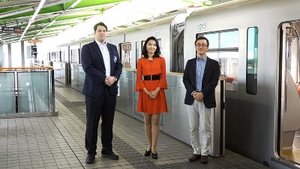
17. Advanced Urban Travel: Japan's Monorail Systems
1957 saw the opening of Japan's first monorail. 60 years on, Japan is a world leader in monorail technology with 11 lines currently in operation covering a distance of 100km. In this program, we take a look at how monorails have become an increasingly popular mode of urban transportation; the unique characteristics and comparative benefits of both straddle and suspended monorail systems; and Japan's well-established monorail technology which has been gaining attention all over the world.
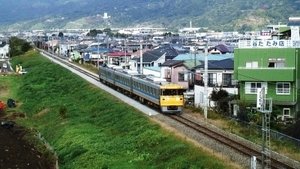
18. Safeguarding the System: Maintaining JR Central's Conventional Line
JR Central, which operates the Japanese high-speed "Tokaido Shinkansen", also operates 12 conventional lines totaling 1,420km. To ensure stable operation, state-of-the-art equipment is used for maintenance, such as the line inspection vehicle "Dr. Tokai", which inspects tracks down to 0.1mm using a two-dimensional laser. Discover how conventional lines are maintained, then meet the specialists who detect deterioration of iron bridges by making full use of their experience and their 5 senses.
